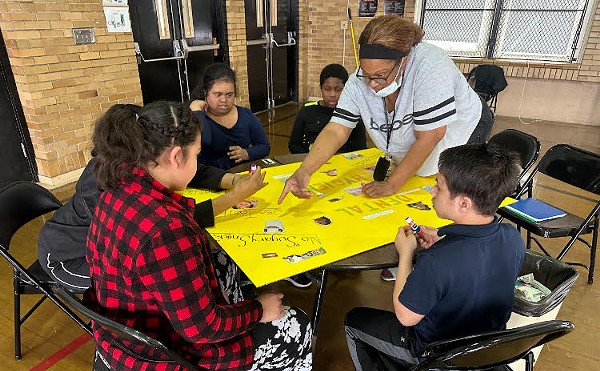“To protect and to serve.” A cogent message for such a simple phrase — originally the motto of the LAPD, but familiar to us all. Brilliant in its simplicity and intended purpose, yet difficult to comprehend the magnitude of its implications. I am 30 years old and still not sure I understand it. At the very least, it should be questioned and challenged every day.
There are times when the goal of this phrase is evident — Derby weekend, traffic control, house or car break-ins, bar fights, et cetera. However, there are other instances in which that phrase becomes ambiguous beyond the point of recognition.
This week in Ferguson, Mo., illustrates the ambiguity.
Let me start by stating unequivocally that law enforcement agencies around this country are charged with an impossible task. It is a job made much more complicated by the fact that they are defending the most heavily armed citizenry in the world from itself. Yet this editor’s note and issue of LEO are not about America’s gun problems (unfortunately there will be another tragedy in our future that will warrant such an article and issue). This note is about what kind of country we want to live in.
Certainly not one where an unarmed 18-year-old can be shot to death (six times) by the police.
Similarly, there was the recent gut-wrenching video of another unarmed young man in Staten Island, N.Y., who was locked in a chokehold and wrestled to the ground by several police, ultimately dying on the sidewalk at the feet of those there to protect and to serve him.
This is an insane system.
This is not a racial commentary, but rather a statement of fact that minorities in America are victims of systemic oppression in significantly (staggeringly) greater numbers than white Americans. This is about more than a militarized police, or a racially-prejudicial justice system. This is about what country we want to live in.
There is an undeniable link between the drug-abuse issues we face here in our community and Commonwealth, and the events transpiring in Ferguson and Staten Island. The same commonality exists between Trayvon Martin, Beecher Terrace and the national incarceration crisis—too many communities exist under the incorrect guise of “Land of the Free.”
There are more than 2.3 million people incarcerated in this country, which would make it the fourth largest city in America. Of that 2.3 million, over half of those imprisoned are black or Hispanic Americans — 1 million of those imprisoned are black Americans. According to the NAACP, five times more white Americans use/abuse illicit drugs than do black Americans, while black Americans are sent to prison for drug-related crimes at a rate 10-times greater rate.
I am not suggesting nefarious, racist intent, but rather stating the irrefutable fact that we live in a country that systematically oppresses a significant population of its people. And whether law enforcement is doing right or wrong, it exists within an insane system in which we cannot decipher what right and wrong actually is. It is unfair to all of us. It is unfair to law enforcement. And it is certainly misleading to assert the motto “to protect and to serve.”
So when building the nation we want to live in, let us start with the simple goal for every community herein — large or small, multicultural or segregated, religious or agnostic, smart or dumb, UL fans or UK fans — must be free. Freedom is the result of a dynamic convergence of various, complex issues, ranging from education, economics, social mobility, fear and security, as well as a willingness to sacrifice. In other words, freedom is more than just living wherever, watching whatever, talking with whomever. In order to be free, you must have the opportunity to receive an education, succeed and prosper economically, and pursue your life’s ambition free of fear.
This is a nation in which law enforcement can enthusiastically and safely fulfill their role of protecting and serving their communities.
More importantly, freedom is not a zero-sum game. We are not all splitting-up the “freedom pie.” A more apt phrase would be “a high tide raises all boats” … and we are in this boat together. We must recognize the symptoms of this disease — be it drug abuse, excessive-incarceration or police violence — and acknowledge that we are all vulnerable if we do not come together to fix this insane system.
This note is about more than feeling guilt, remorse or anger — none of those emotions can right the wrongs of the past. The only meaningful effect these emotions can incite is the motivation for change.





